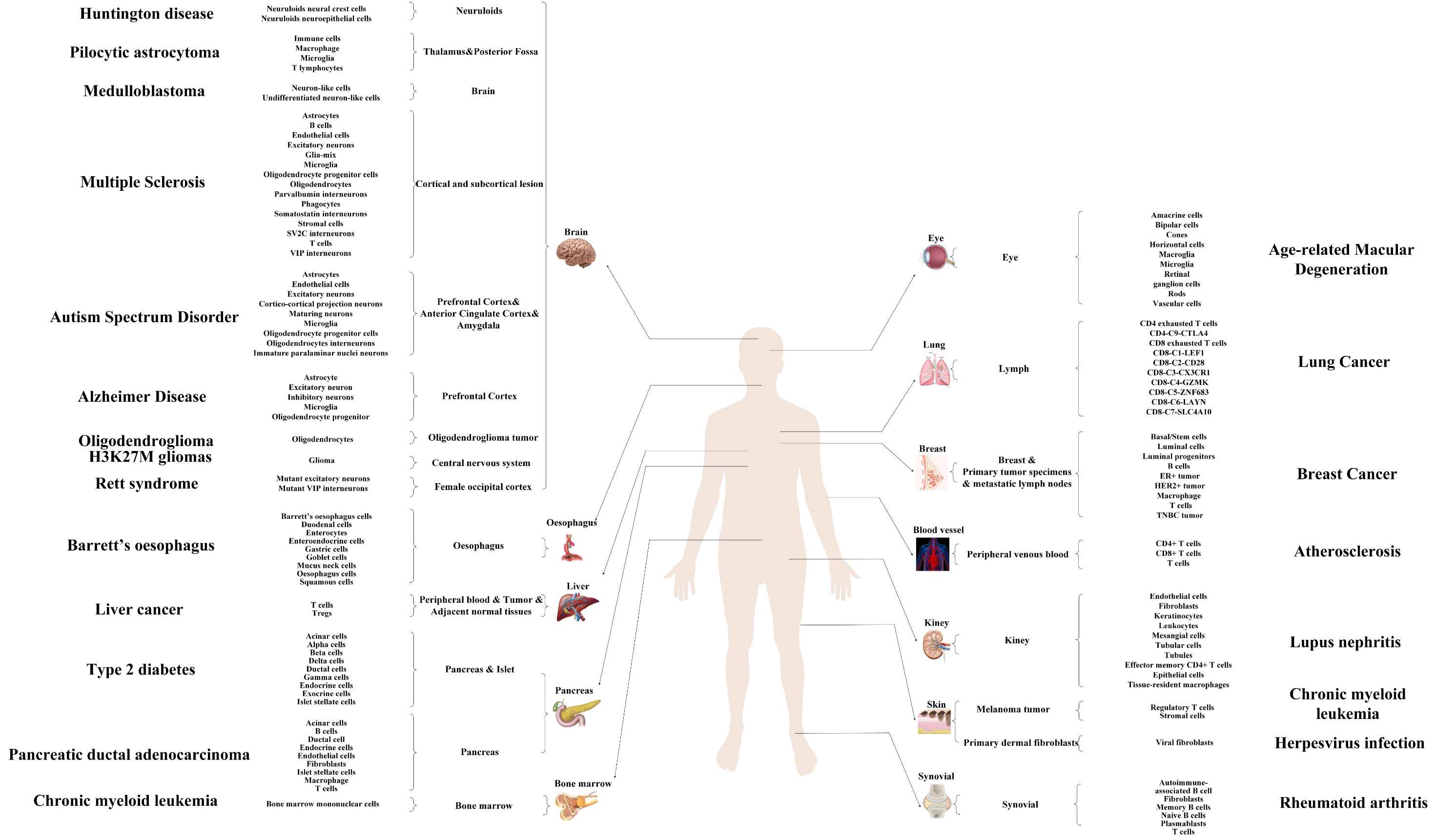About SC2diseases
Summary of SC2diseases
Introduction of SC2diseases
The transcriptome plays a crucial role in the maintenance of cell identity and the spatiotemporal specificity in the process of cell differentiation, which consequently produces a profound impact in the formation of any organism and regulatory complex. Additionally, in the last decade a large number of studies have shown that coding and noncoding RNAs are involved in the regulation of susceptibility and progression of multiple diseases. Notably, single-cell RNA-sequencing (scRNA-seq) technologies have been boosted rapidly in the last few years, which enables the study of the transcriptomic profile of complex multicellular organisms at single-cell resolution. Compared to bulk studies, scRNA-seq provides scientists a new tool to investigate the cellular heterogeneity in expression patterns rather than the average expression of thousands of cells, which brings insights on what causes a normal cell to turn into a malignant one in different diseases. Herein, we established a scRNA-seq database deriving from numerous human studies. This novel database will provide researchers with an encyclopedia of biomarkers at the level of genes, cells, and diseases.
Overview of SC2diseases
What can SC2disease do:
- Browsing for the expression of interested genes;
- Searching for cell-type markers;
- Searching for the biomarkers of multiple diseases;
- Comparing the expression profiles of various types of cells in disease and non-disease states.
Diseases
- Breast cancer
- Melanoma
- Type 2 Diabetes
- Oligodendroglioma
- Chronic myeloid leukemia
- Liver Cancer
- Lung cancer
- H3K27M gliomas
- Barrett's oesophagus
- Alzheimer disease
- Rheumatoid arthritis
- Autism spectrum disorder
- Lupus nephritis
- Pancreatic ductal adenocarcinoma
- Multiple sclerosis
- Medulloblastoma
- Pilocytic astrocytoma
- Huntington Disease
- Rett syndrome
- Age-related macular degeneration
- Atherosclerosis
- Herpesvirus infection
Release & Version
- Version 1.0. Released on Jun 10, 2020
Reference database
Visitors
Cite & contact
- Cite: SC2diseases: a manually curated database of Single-Cell Transcriptome for human diseases, Nucleic Acids Research, 2020.
- Jiajie peng
- Email:jiajiepeng@nwpu.edu.cn




